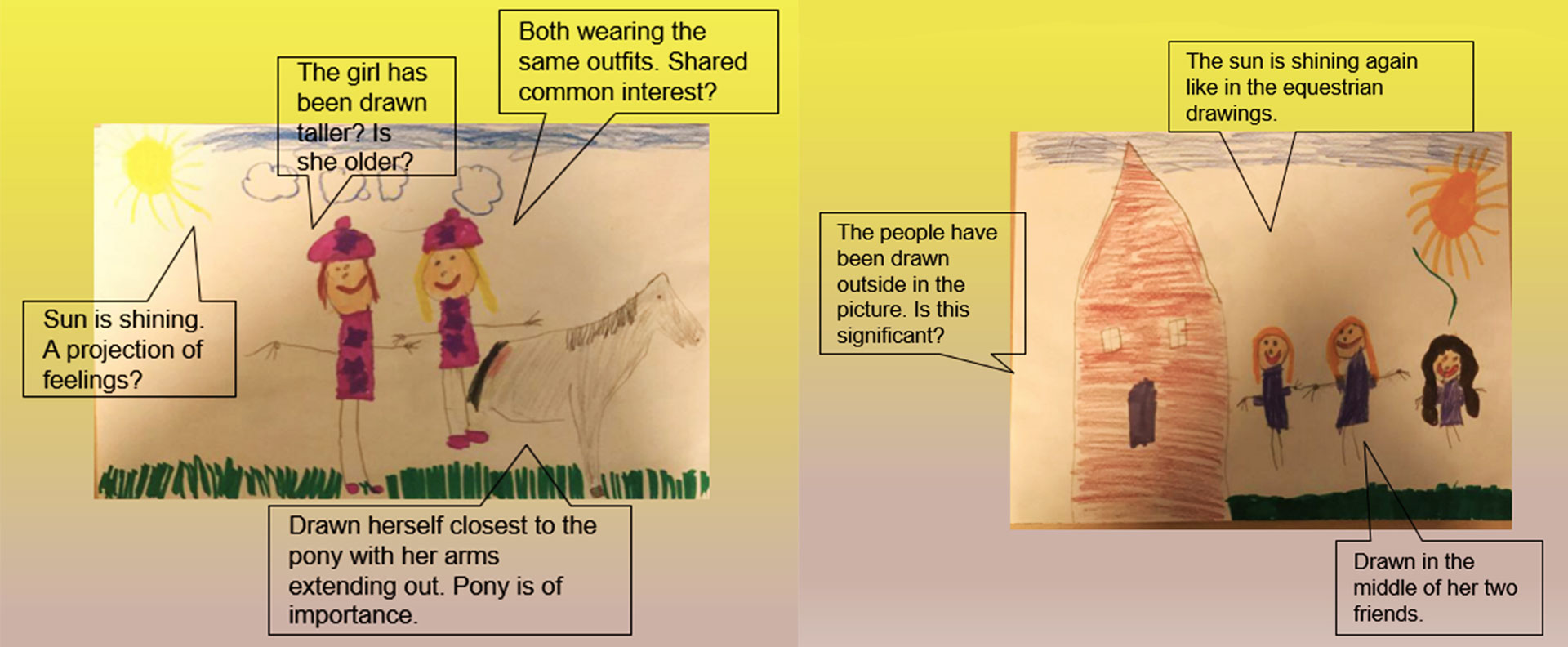Finding a voice - undergraduate research conference

Lindsey Watson
Course leader, Childhood Studies BA(Hons)
On the 23rd of February 2022, final year Childhood Studies BA(Hons) students in the School of Education and Professional Development presented their own empirical research at the 7th Annual ‘Finding a Voice’ conference.
As in previous years, the one-day conference is the final assessment on the student’s ‘Finding a Voice: Children and Young people module’. Throughout the course, students are challenged to explore concepts such as agency, autonomy, children’s rights, empowerment and participation. The ‘Finding a Voice’ module is a bringing together of the student’s knowledge and perspectives, yet it realises much more than this. It challenges students to question and apply knowledge, and as the United Nations Convention on the Rights of the Child (Unicef, 1989) suggests, to consider children and young people’s active participation in matters that are important to them.
The day began with an opening address from Professor Kevin Orr, Associate Dean for Teaching and Learning within the School of Education and Professional Development. Kevin welcomed students, staff and guests to the conference, on campus, after the adapted online format of the conference last year.
Kevin also introduced the Keynote speaker, Dr Abigail Hackett from Manchester Metropolitan University. Abi is a Reader at the Education and Social Research Institute, Manchester Metropolitan University. She is interested in the role of place, materiality and bodies in young children’s lives and researches mostly in community spaces, in collaboration with children and families, employing ethnographic and post-qualitative methods. Abi’s extremely well received Keynote explored notions of voice, empowerment and participation, providing stimulating fuel to inspire and motivate students, many of whom drew on Abi’s Keynote in their own presentations on the day.
The conference then moved to nine chaired sessions where approximately 70 students presented their research.
Paige Thomas
My research centred around children’s different Identities, specifically how children portray themselves in terms of friendships, comparing school and equestrian contexts. Drawing on my own personal experience of educational and equestrian contexts, I was particularly interested to find out how the dynamic of friendship played out across different contexts.
The participants in this study were two children aged four and seven. Fully involved as fellow researchers, the research participants were given the choice of a range of data collection methods, both opting for the ‘draw and tell’ method (Angell and Angell, 2013), proposing an element of shared decision making within the study. The participants told their own stories through their drawings of themselves and their ‘friends’ within educational and equestrian contexts. As suggested by Anning and Ring (2007) the children used drawings to reflect on their own personal experiences in two data collection sessions over MS Teams, where they brought their data alive, using their words.


There were some interesting findings, such as the children identifying their horse as their friend. Mukherjee (2020), explains that horses can often do emotional work for humans by staying calm when we are nervous, therefore reinforcing the friendships between the children and their horses.
Another interesting finding was intergenerational friendships; whereas in educational settings children’s friendships can be categorised by age, in the equestrian setting this did not appear to be the case. In agreement with Grandin (2019) who states that through their love for horses, children make friends based on common interests.
As a researcher I went into the research thinking friendships was black and white however the children have highlighted that actually there are many different aspects to friendships.
I enjoyed presenting the research that I had worked so hard to collect and analyse, it makes you feel a true accomplishment. I realised that it’s good to just be confident and proud of the work you have done, everyone was interested in my topic even though they didn't necessarily relate to it.
Fatima Sadiq
I chose to carry out research on how ‘Investigating young girls’ impressions of how body image is depicted in the media and how it impacts their identity’. I chose this topic despite there being a lot of research on social media already, because I wanted to do a small-scale study in-depth study, focused on their feelings and their voices, to facilitate a platform for them to express their voices. I wanted to explore their views on social comparison, and how social media might impact on their education.
I gained ethical consent from the University, following the British Educational Research Association (2018) guidelines. Two 18 year old girls participated and gave informed consent. I discussed the research with them first, highlighting key ethical considerations such as safeguarding, no photos of themselves included, and the right to withdraw. I tried to ensure that they had a voice in the ethics process - particularly important due to the potential sensitive nature of the research.
Considering the views of Spyrou (2011), I adopted a reflective lens, as I wanted my participants to have freedom and choice and to know that I valued their perspective. I drew on Lundy’s (2007) notions of time and space, I took my time and did not want my participants to feel rushed. Following these principles, one of the methods I chose was photo voice, where participants chose images to represent their views which facilitated open discussion. Another method I used was emotion mapping and arts and crafts, facilitating further opportunities for authentic voice, including co-analysis of the data.
Through co-construction of the data my findings revealed two main themes:
- The influence of social media on body image and self-esteem
- Young people’s perceptions of likes and comments, of influences images on Instagram

The creative methods sought to facilitate individuality, making sure participants felt comfortable discussing their feelings and views through the medium of arts and crafts. Both participants had limited positive feedback about themselves, and discussed how they often changed themselves when representing who they were and exploring their identity online. They often looked towards making social comparisons when using social media, and applied coping mechanisms specifically when managing feelings around the number of likes an image received. They disclosed how social media can impact them culturally and mentally, making links back to UNCRC 24, where children and young people have the right to function mentally and physically in a safe environment.
The participants' perceptions were really interesting. They cared about what other people thought. They used social media as a platform and cared about the likes a post received, the attention it got as a form of satisfaction and approval.
I was surprised about the cultural element. As a young woman from a religious background, I was surprised to see how much social media was influencing young people’s decisions regarding their religious beliefs.
This research has made me reflect on my own beliefs and about how I might consider other’s views and voices in the future.
Final reflections
The conference was closed by Helen Lomax, Professor of Childhood Studies and Director of Research at HudCRES.
This year’s presentations raised the bar, responding to Dr Abi Hackett’s defining key note that, as childhood scholars, we need to enter children’s cultures in order to understand their worlds. Framed by a commitment to children’s rights and an ethics of care, our childhood scholars elaborated the importance of careful listening and the contribution of creative methods for enabling children to articulate, and adults to hear, children’s voices.
Professor Helen Lomax
Thanks so much for inviting me to your event. I thoroughly enjoyed it and was impressed by the quality and creativity of the research presented. It was exciting to see the diversity of ways in which the students were taking up the invitation to engage with the potentials and problematics of children’s voice. The way in which the students responded to the ideas in my keynote in their own presentations was much appreciated, and made the day feel like a genuine academic dialogue about issues of children’s agency, meaning, power and method.
Dr Abigail Hackett
It was amazing to have the conference back on campus. The students made this conference - their commitment to carrying out ethical and interesting research with children and young people and then presenting their findings is one of the pinnacles of the Childhood Studies BA(Hons) degree. A coming together and celebration of ‘childhood’, the essence of the Childhood Studies BA(Hons) vision. We are so proud to have such knowledgeable and inspirational students.
Find out more about the University of Huddersfield Childhood Studies BA(Hons) course.